SUMMARY
This is AI generated summarization, which may have errors. For context, always refer to the full article.
![[FIRST PERSON] Chad Booc was my friend. The AFP killed him.](https://www.rappler.com/tachyon/2022/04/ispeak-chad-booc.jpg)
I first encountered Chad in January 2015, when we were both volunteers at an assembly of student councils. He was a lanky boy with a sunflower smile. He had a gentle voice, so when he’d tell a joke, he’d have to repeat it louder for you to laugh. We grew closer the following semester when we were classmates in PI 100, I was in the student council and he was one of UP’s friendliest and most prominent activists. We would say hello at rallies, watch the speeches and performances, gossip at the sidelines during intermissions of the program. After graduation our friendship became like those friendships so common in adulthood: inconsistent but comforting, talking frequently online and occasionally in real life, full of promises to see each other and catch-up properly when we were less busy. The promises kept repeating and repeating until the AFP killed him on February 24.
In her The Year of Magical Thinking, Joan Didion writes about the year she spent coping with her husband’s death. Magical thinking refers to a concept in anthropology when people believe even the smallest actions can somehow prevent someone from dying. “I realize how open we are to the persistent message that we can avert death. And to its punitive correlative, the message that if death catches us, we have only ourselves to blame,” Didion says.
The day Chad died, a friend had messaged me the news. I didn’t feel shock or grief or anger. I felt annoyed. The news source came from the military, an institution that didn’t have the cleanest record of truthfully reporting on activists. I assumed the news was wrong. Chad was fine, sleeping, reading a book, swimming in a lake somewhere. More and more people posted about his death, and I clung to that feeling of annoyance. I was irritated because I thought they were killing him even before he had died. I believed that if no one posted, if we all just reported the trolls and the fake news sites, Chad would be safely found. I kept holding on to that feeling of annoyance. Because if I had let go of it, then I would have to feel the grief, and grief meant the truth of his death. I paced around my room to avoid thinking about it. I swept the floor. I rearranged my books and decided to withdraw from the bank since I was almost out of cash. While walking, I considered a world without Chad and cried in the middle of the street.
The poet Momtaza Mehri had posted (in their now deactivated Twitter account) a clip from the short film It Still Rotates by Sudanese director Suliman Elnour. The clip documents a meeting in newly-independent South Yemen where teachers and students treated each other according to more egalitarian standards. I sent the clip to Chad. He immediately thanked me and posted it on his social media. Chad’s thoughtfulness extended to even those minor mundanities. We’ve all been guilty of being sent something by a friend — a video, an article, a song — and ignoring the message. But Chad always responded: genuinely, mindfully, substantially. I sent him an excerpt of Umberto Eco’s essay on fascism, and he responded 15 minutes later about how insightful it was in understanding the Philippine situation. I made a passing comment about the troubles of social-democratic parties in Europe, and he encouraged me to discuss it further. He always listened, always responded with something funny or meningful. He graduated with a degree in computer science but his interests encompassed anything that contributed to his continuing, holistic education. He asked for copies of essays by Friedrich Engels, Arundhati Roy, Alice Guillermo. He talked about the difference between private property and personal possession. He proposed the idea of making a reading group. It didn’t push through, because I assumed there would be more time.
The poet Brenda Hillman wrote the collection Death Tractates after the death of a close friend. A tractate is a work of logic, and Hillman used the form to make some sense out of the senselessness of death. In the first poem, the speaker says: “When she had just started being dead I called to her.” When I finally accepted the truth of Chad’s death, I tried calling to him. I needed to hear his voice again, even only in memory, before it was eroded by time and the demands of daily life. I backread through our messages. His last message asked me what had happened to my Twitter account. I told him I deactivated him because I needed a break from social media, and he said he was relieved because he was concerned it had been taken down. His concern permeated our last conversation. Even when he was the one just released from jail, the one who received death threats on a regular basis, he thought beyond himself and worried about the well-being of his friends.
Following Chad’s murder, I was shocked at the attempts to dirty his memory. Under pictures of him on social media, there are dozens and dozens of trolls claiming he was a member of the NPA, that he deserved to be killed, that he was “sent to Satan.” The AFP claimed he was an NPA soldier since he was 15, when he was just a high school student in Cebu. Lorraine Badoy, the NTF-ELCAC spokesperson, accused him of “crimes against humanity” and said that she can’t even call him human. It’s one thing to grieve for the death of a friend. It’s another to see a friend suffer such disgusting lies, insults, and black propaganda even after his death. Was he that much of a danger to the country? He seemed to be the biggest threat to national security – not drug lords or crime bosses or political dynasties with private armies or the Chinese military in the West Philippine Sea, but a lanky boy with a sunflower smile who taught and cared for Indigenous children. Chad posed such a danger that the state concentrated their significant energies and resources in killing him, and continued their efforts in killing his memory even after he died. I’ve concluded that Lorraine Badoy is a ghoul, because only ghouls feast so voraciously and viciously on the dead.
Chad was dangerous. Not because he hurt anybody, but because he showed an alternative. We’ve become so used to corruption, to impunity, to selfishness that we assume it’s the natural order. We assume everyone acts in self-interest. But Chad showed a different way of being. He refused a well-paid, comfortable life — one easily in his grasp after graduation — to serve some of the most ignored and exploited communities in the countryside. No smear campaign can undo the dignity of his life or erase the truth. He was one of the most selfless people I’ve ever met. One of the bravest, the friendliest, the kindest. The AFP killed him, but Chad still glows. – Rappler.com
Lakan Umali is a graduate student from UP Diliman and a member of the Congress of Teachers/Educators for Nationalism and Democracy.
Add a comment
How does this make you feel?
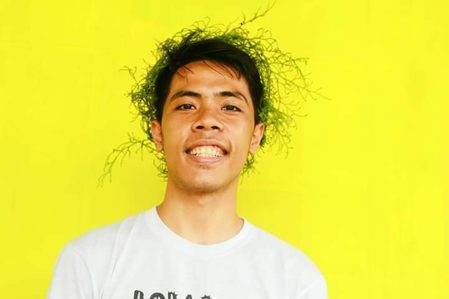
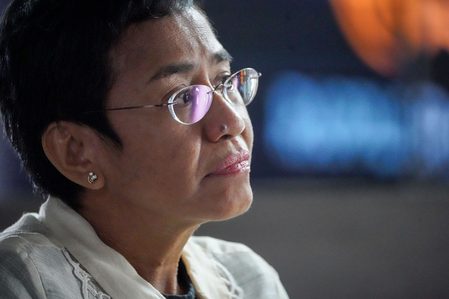
![[OPINION] ‘Some people need killing’](https://www.rappler.com/tachyon/2024/04/tl-some-people-need-killing-04172024.jpg?resize=257%2C257&crop_strategy=attention)


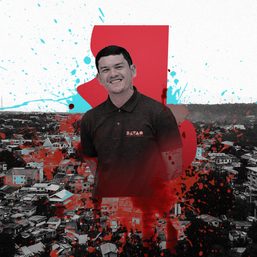
![[EDITORIAL] Hustisya sa Jemboy case: Tinimbang ka ngunit kulang](https://www.rappler.com/tachyon/2024/03/animated-jemboy-baltazar-killing-verdict-carousel.jpg?resize=257%2C257&crop=257px%2C0px%2C720px%2C720px)
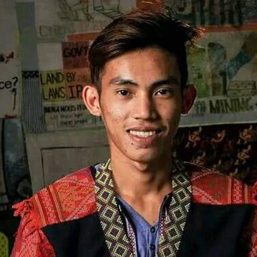
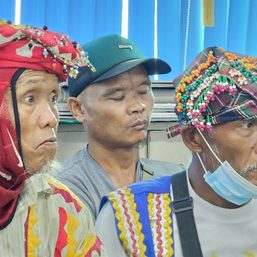
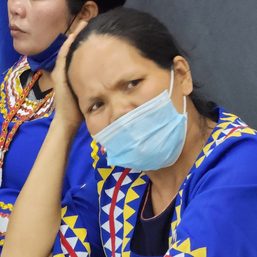

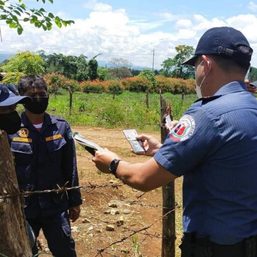
There are no comments yet. Add your comment to start the conversation.